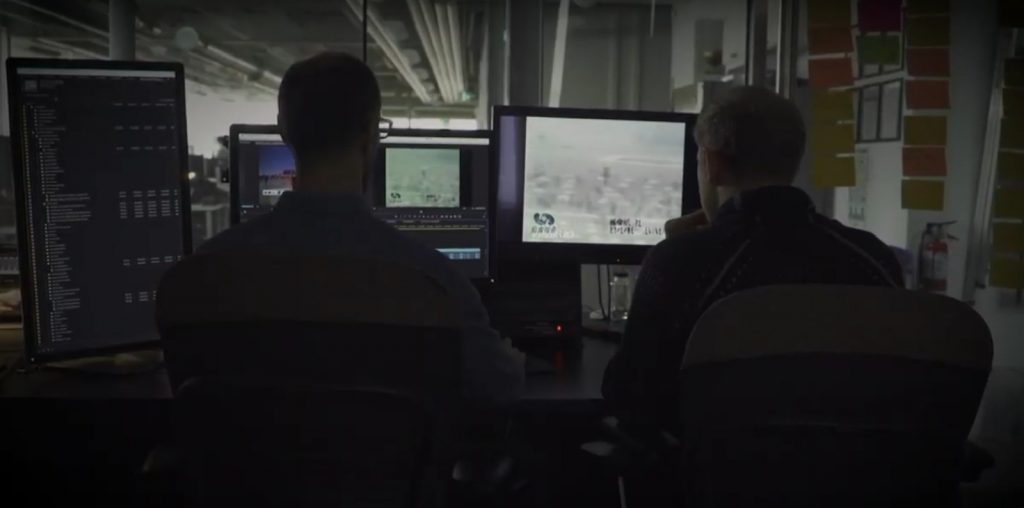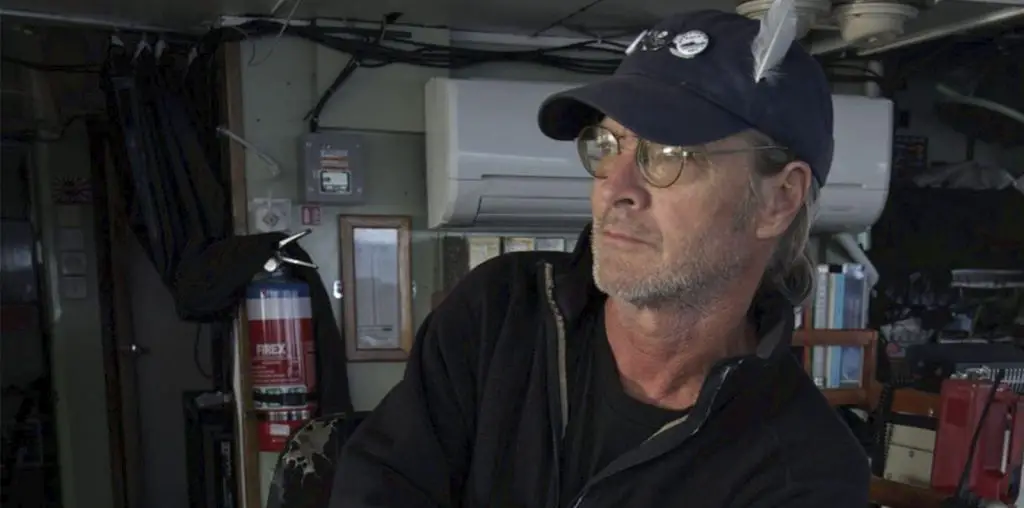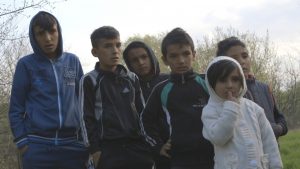
MAMMOTH LAKES 2020 FILM FESTIVAL REVIEW! Nature is always around us, but most of us don’t fully immerse ourselves in it like the Enache clan does in Radu Ciorniciuc’s naturalistic documentary Acasa, My Home. For nearly two decades, the Enache family, made up of nine kids and their parents, lived in a homely shack in the wilderness of the Bucharest Delta. The delta is an unoccupied water reservoir with several lakes, exotic plants, and foreign animals. For nearly two decades, the Enache family resides in a place of sheer tranquility and beauty. Having lived there for so long, they have found a rhythm, a way of life that resonates between them and their surroundings.
When their home is infiltrated, the Enache family must deal with the authorities to keep their precious habitat intact. Woefully, those in power are attempting to reclaim this exquisite urban ecosystem, hoping to turn it into a nature reserve. The ramifications of turning this, or the Enache family’s home, into such are dire. The family is evicted from their home and moved to the city, where the children must go to school, they must abide by the rules (fishing is only allowed in certain areas), and they must work on being tax-paying citizens.
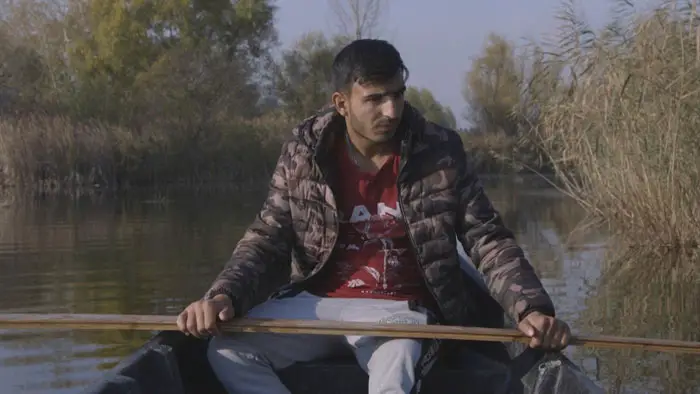
“The family is evicted from their home and moved to the city, where the children must go to school, they must abide by the rules…”
The first 20 minutes of Acasa, My Home are rapturous, gorgeous, and life-affirming. Unfaltering shots of the kids swimming in the lake, partaking in mischief, and kicking a ball around deftly depict the Enache family’s everyday life with a crux of freedom and fluidity. One of the best shots of the film establishes the concrete walls around the Bucharest Delta, which separates nature from urban. We start with a level shot of the kids kicking around a soccer ball, but the camera suddenly begins getting higher and higher, beautifully turning into an aerial shot. Gradually, the camera tilts, and an establishing shot of the grey-hued town a couple of miles away physically and metaphorically conveys the glaring differences between both areas.
Slowly but surely, the Enache family are forced out, and their identity becomes muddled. The abrupt shift of pace the Enache family must adapt to in the city largely appears unjust. Rapid gentrification punctured their identity and beliefs, and their 20-year presence in the territory is criminally misprized. The patriarch of the family, Gica Enache, is having the hardest time accepting the changes. At first, Gica feels looked down on by the suits in charge, even though he knows this ecosystem better than they do. At one point, Gica says, “Believe me, If they destroyed it, I’d die too.” And as urban life continues to be strenuous, Gica becomes bitter, and this inevitably prompts arguments between Gica and his wife.
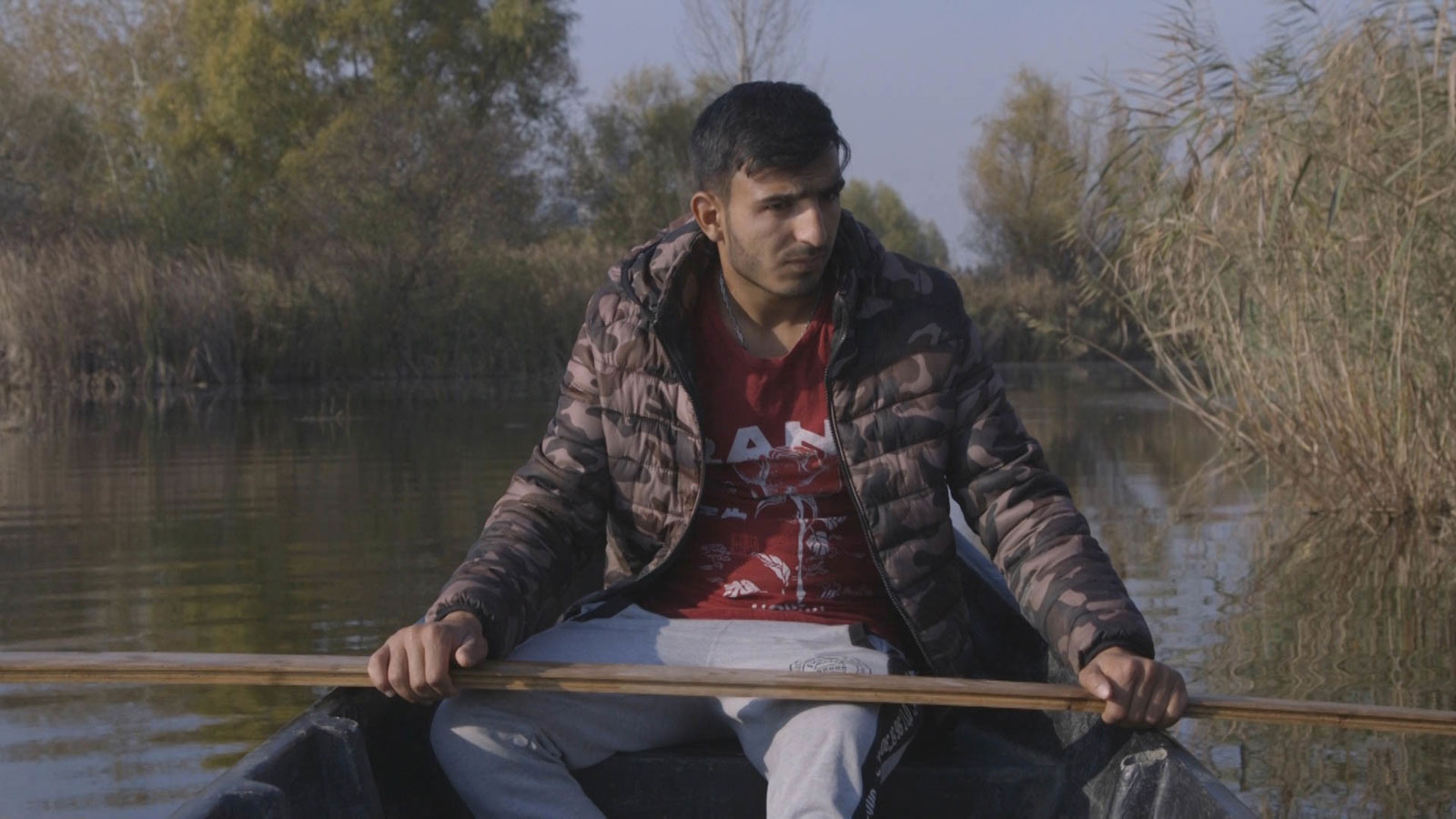
"…Slowly but surely, the Enache family are forced out, and their identity becomes muddled."
